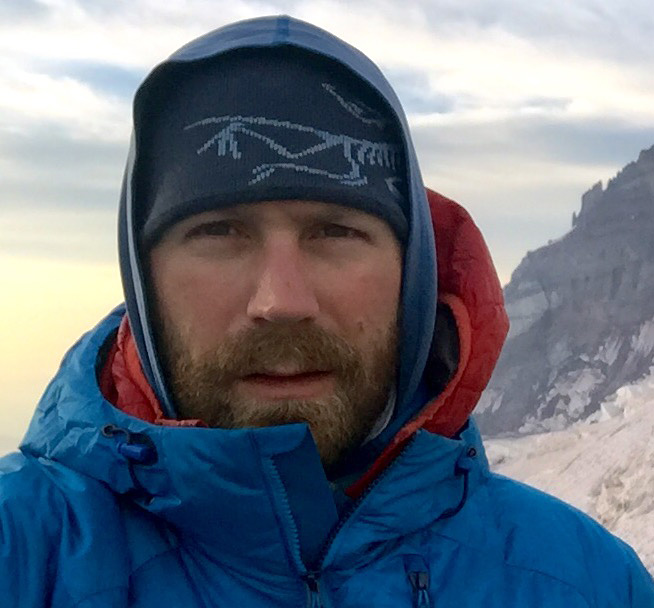Personal advice on climbing Aconcagua from Mike Hamill

Aconcagua is a unique climb, bringing you into the realm of true high-altitude mountaineering. As the highest peak outside the Himalayas, it is bound to challenge and excite you.
Some people say that Aconcagua is an ‘ugly’ mountain because it is not your typical snow and ice-covered peak, but it is more of an arid, desert-like environment. Personally, I find it one of the most beautiful places because of its unusual character and the rare juxtaposition of high glaciers, rock, and earth. I liken it to the Southwestern United States when it still had glaciers. Its sunsets are phenomenal, with condors flying above you and the sky turning fiery red and orange.
To help you on your Aconcagua journey, here are just a handful of things I’ve imparted to my clients over the years (and used myself!) that have helped them be successful – tips that I hope will contribute to your summit, too.
Best wishes,
Mike
- Don’t underestimate the cold on summit day on Aconcagua. Combined with the thin air the ambient temperature will feel much lower, which makes the pace slower than you might expect. It’s likely your feet will feel the cold more than they otherwise would, so I recommend investing in a triple boot, especially if you are planning on doing other high altitude, 8000m peaks or cold weather climbs like Vinson or Denali in the future. Triple boots will ensure you aren’t fighting to keep your feet warm all summit day.
- Even on the best weather days on the summit bid, there is almost always a fierce wind crossing the Gran Acarero, so make sure you have a thick face mask on hand and ready to put on. In fact, having a good cover-up system of layers (buff, sun hoodie, goggles, etc.) is important everywhere on Aconcagua. If it is not the wind, it’s the sun and the dust that you need to ward off.
- Taking care of yourself is essential on Aconcagua, particularly making sure you don’t get dehydrated. Whenever you are at altitude you need to drink more water than at sea level because of the dry air, but this is even more so on Aconcagua as you move through the desert-like environment. Drink before you are thirsty, and keep sipping water throughout the day. Your urine should be clear. The same goes for calories. Being at 7000m means you need plenty of fuel and quick calories, so you don’t bonk. I like Shot Bloks or Gu packs in my pocket and down them as often as possible. Bring your favorite snack foods from home that you know will tempt you even when you don’t feel hungry.
- Commit early to Aconcagua. If you are able to plan 6 months to a year in advance and lock in your goal by booking a spot on a team, you will give yourself a greater opportunity for success. Being financially and mentally committed means you are more likely to stay physically committed, too. Having a good run up is very helpful in terms of making training a daily habit. Get fitter and stronger than you think you need to be. Aconcagua is an enormous physical undertaking. A strong foundation of specific ‘pack carrying climbing fitness’ will also ensure you enjoy the ‘type 2 fun’.
- Be a great teammate. Ruck in and do your part. Aconcagua is truly a team mountain. To be successful, you will need to shoulder your share of group gear, be organized, and be ready to build and break camp almost daily. Make an effort to help your guides wherever you can. Be eager. Remember, your guides are the ones who get you to the top, so helping them helps you, and on a mountain like Aconcagua, it won’t go unnoticed.

Climbing Aconcagua: Guide Tips
